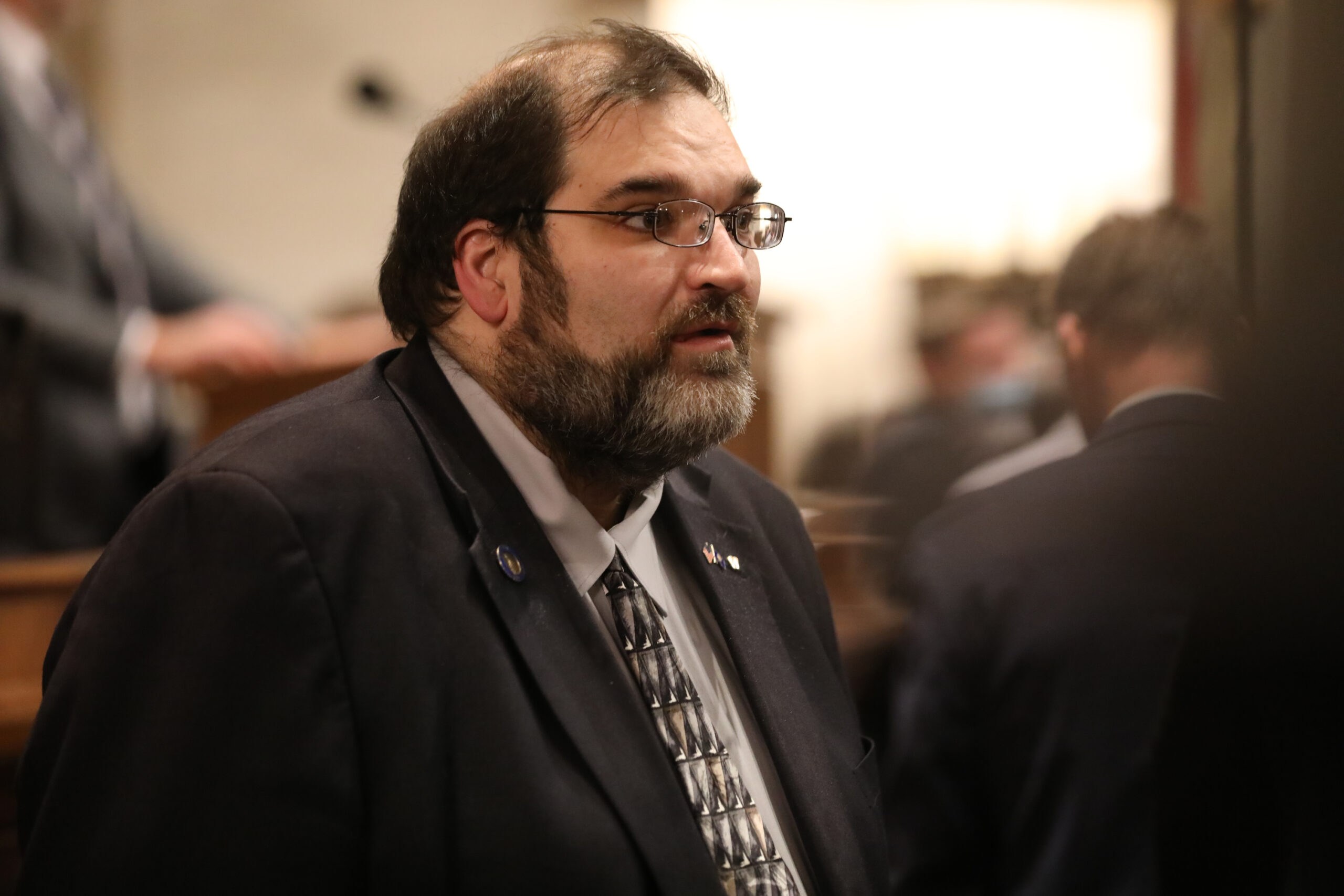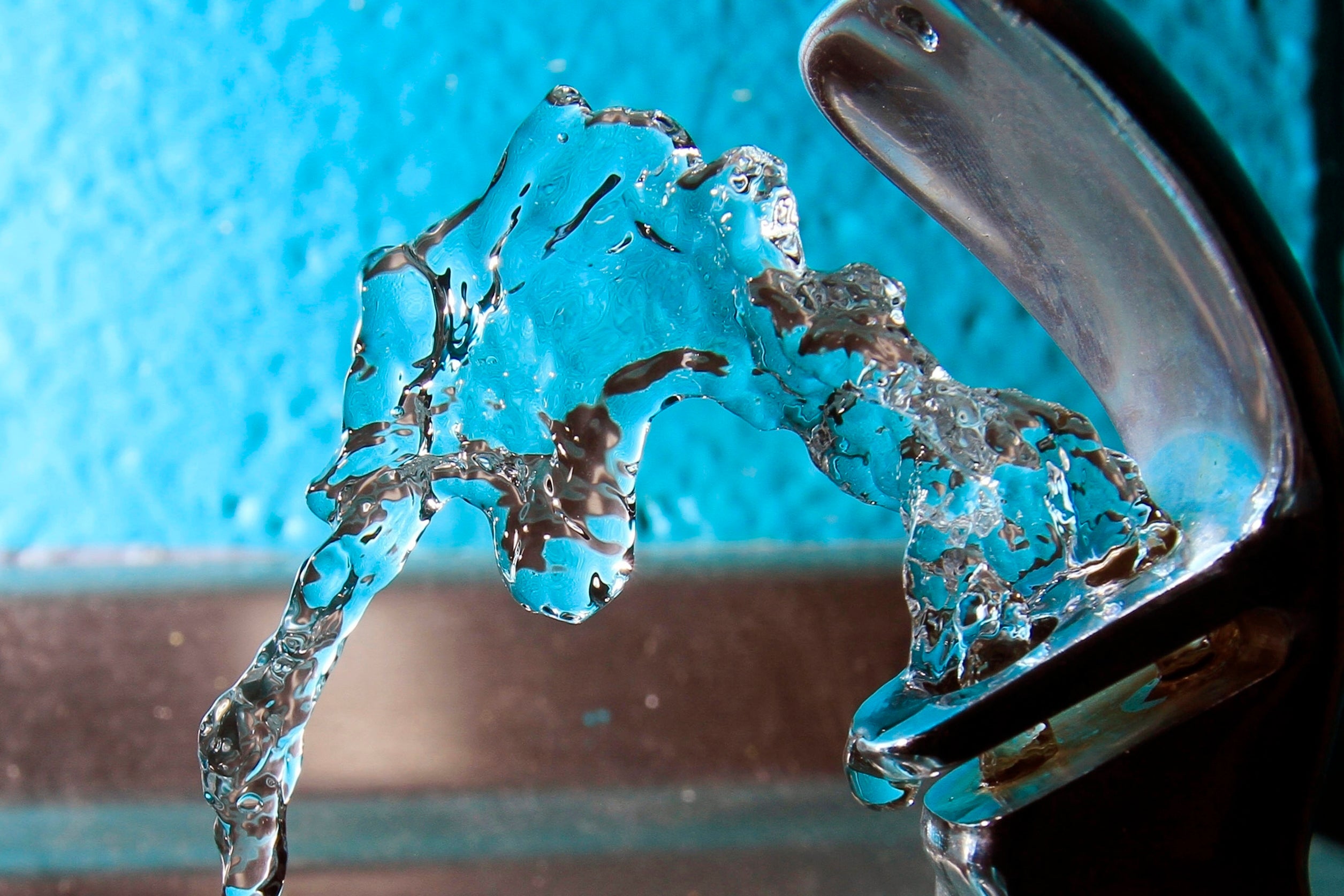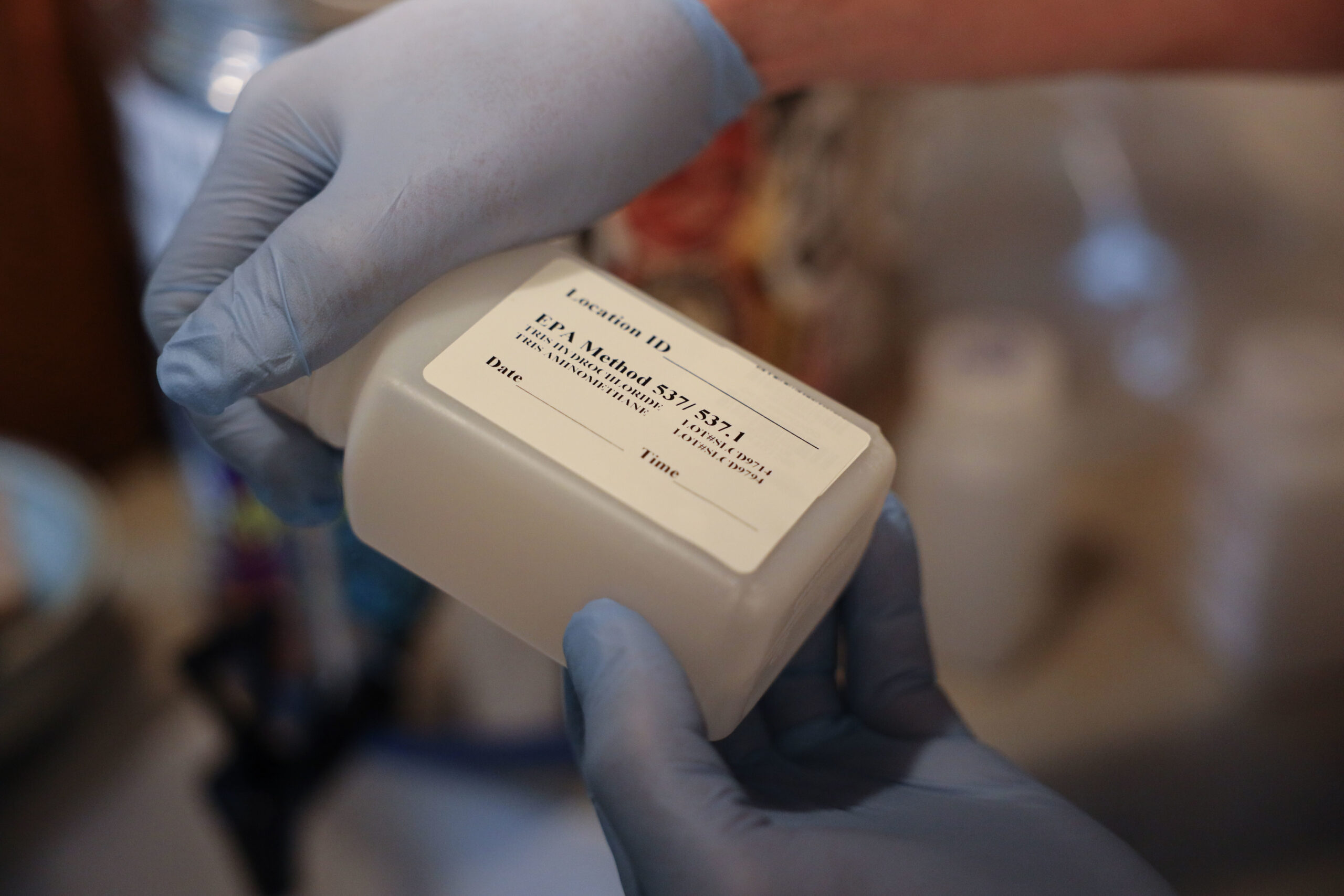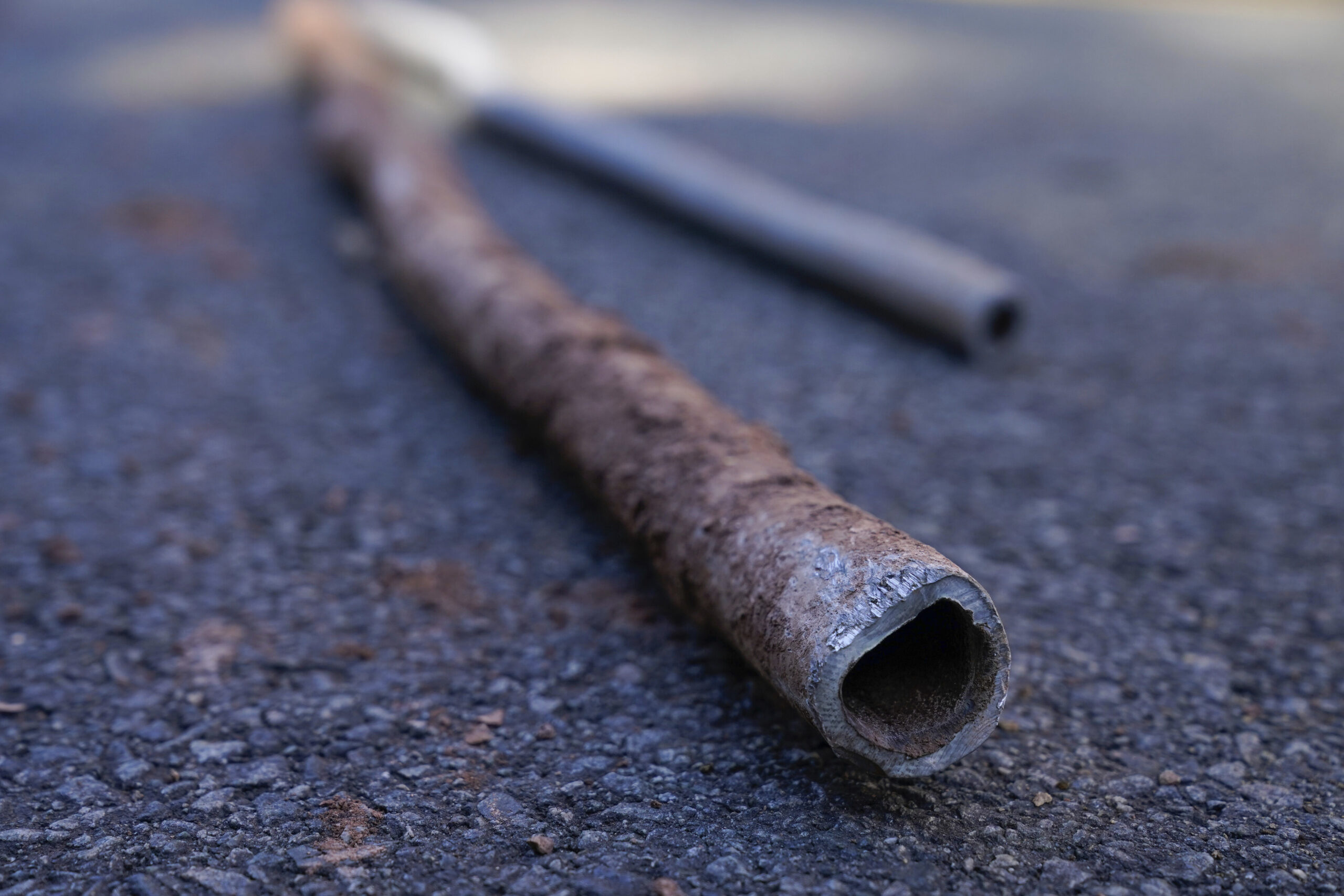Republican lawmakers are floating a bill that would help schools install and maintain filters on bubblers and bottle filling stations to prevent exposure to lead and PFAS in drinking water.
The proposal is in line with Gov. Tony Evers’ goal to modernize drinking water fountains to eliminate harmful contaminants from drinking water, which he announced during his State of the State address.
Republicans State Sen. Andre Jacque and Reps. Jeff Mursau and Todd Novak are circulating the draft legislation. The proposal is similar to a bill introduced late in the last legislative session that failed to advance.
Under the bill, school boards at public and private schools must develop plans to manage drinking water that include installation of filtered bottle filling stations or faucets. Schools would also be required to develop a schedule for sampling and testing water for lead and the two most widely studied PFAS chemicals, PFOA and PFOS.
“We’ve had concerns — whether it’s lead pipes or other contaminants, certainly emerging contaminants, PFAS and microplastics. But this is really a potential opportunity to ensure that students can go to school and know that what they get from the bubbler is safe,” Jacque told WPR.

Stay informed on the latest news
Sign up for WPR’s email newsletter.
Lead exposure can damage the brain and kidneys, and children with lead poisoning can experience learning and behavioral issues. There is no safe level of lead. Research shows high exposure to PFAS, short for per- and polyfluoroalkyl substances, has been linked to kidney and testicular cancers, fertility issues, thyroid disease and reduced response to vaccines over time.
Gov. Evers told WPR the bill appears to be in line with his administration’s efforts to ensure safe drinking water in schools under the next two-year state budget.
“What they’re thinking about is probably very consistent with what we’re thinking,” Evers said.
The governor has proposed $6 million to support lead poisoning intervention and response, as well as $5 million to remove harmful contaminants from private wells. Evers has also proposed spending $145 million to address PFAS contamination, much of which would stem from $125 million set aside under the current budget.
Jacque said the bill could potentially seek to tap into some of the funds previously set aside to address PFAS.
“Obviously there’s still conversations that we need to have as we get into the budget process, but I just think that it’s a reasonable ask,” Jacque said.
The Department of Public Instruction previously requested $2.5 million over the next two-year state budget for awarding grants to help schools modernize water fountains.
“It is critical that Wisconsin kids have access to clean drinking water, and schools are a big part of that,” State Superintendent Jill Underly said in a November statement.
Some groups voice concern over access to funding
Under the bill, DPI would be authorized to award grants and help school boards meet the bill’s requirements. However, the agency would be required to submit a request for supplemental funds from the Legislature’s GOP-controlled Joint Committee on Finance under the bill.
Dan Rossmiller, executive director of the Wisconsin Association of School Boards, said that’s concerning as $50 million allocated to fund mandated reading changes under Act 20 remains tied up in litigation.
“Given the somewhat frayed relationship between the DPI and the Joint Committee on Finance, we’re concerned that this will not get caught up in the kind of back and forth that has stalled the release of $50 million in funding for compliance with Act 20,” Rossmiller said.
Jacque said lawmakers don’t want to create an unfunded mandate. The bill requires installation of filters by Aug. 1, 2027. Even so, the DePere Republican said that timeline can be adjusted as the bill moves through the Legislature, adding he expects the legislation will draw strong bipartisan support.
Under the bill, school boards would be required to immediately shut off water that exceeds levels of 5 parts per billion for lead or if levels go beyond state and federal standards for PFAS. They must also replace water filters and test the water again. If levels remain high, school boards must notify parents and the state Department of Public Instruction of test results within 30 days, as well as develop remediation plans.
Many schools are not currently required to sample lead in drinking water because they’re hooked up to municipal water supplies, according to the state Department of Natural Resources. The federal Lead and Copper Rule issued by the Biden administration in October would require schools and daycares to test for lead in 2027, but Republican lawmakers in Congress are already taking steps to repeal the regulation.
There are 275 public and private schools with their own wells in Wisconsin. Of those, most recent data shows two schools exceeded the action level for lead, and one school went beyond the state’s drinking water standard for PFAS in 2023. The DNR said compliance with more stringent federal standards has not yet been determined since they have yet to be implemented in Wisconsin.
Wisconsin Public Radio, © Copyright 2025, Board of Regents of the University of Wisconsin System and Wisconsin Educational Communications Board.




